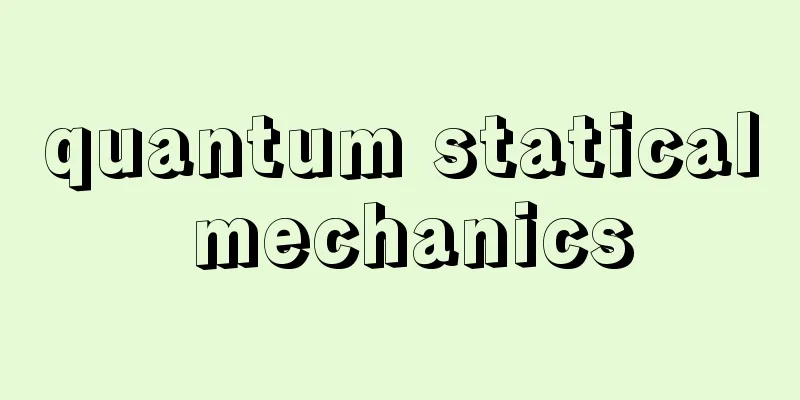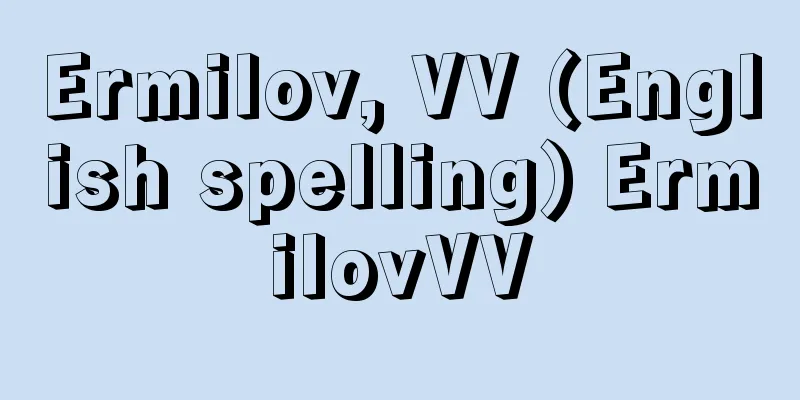Free will - Free will

|
Free will is the ability that humans have that is spontaneously activated without being determined by the causal necessity of nature. The existence of such an ability is recognized as freedom of choice or decision-making. However, according to Spinoza, humans believe that they have free will because they are ignorant of the true causes of their actions, so human will and actions are all determined by causal necessity. In this way, determinism denies the existence of free will, and there are many determinists among modern scientists and philosophers of science. However, the problem of free will is originally a practical problem rather than a theoretical one. For example, according to Kant, the validity of theoretical knowledge is limited to the phenomenal world governed by the law of causality, so the existence of freedom cannot be theoretically proven, but practical reason recognizes the existence of moral laws that humans must obey, and confirms that the causality of freedom, which is different from the causality of nature, exists in the world of wisdom. In other words, the freedom of the will is the autonomy of the will, which imposes moral laws on oneself and obeys them, and this freedom does not mean the freedom of non-deterministic choice, but the freedom to the good prescribed by the moral law. Hegel also criticized Kant's idea of freedom as being merely a finite and subjective freedom of the will, and believed that a truly infinite and free will is a will that is both in itself and for itself, that is, a thought that permeates itself in the form of a will, and therefore freedom is actually nothing other than a recognized necessity. [Yoshiaki Utsunomiya] [Reference] |Source: Shogakukan Encyclopedia Nipponica About Encyclopedia Nipponica Information | Legend |
|
人間のうちにあって、自然の因果の必然によって規定されずに自発的に発動する能力が自由意志である。そうした能力の存在は、選択とか意志決定の自由として意識される。もっとも、スピノザによれば、人間が自由意志をもつと信じるのは行為の真の原因について無知であることによるので、人間の意志や行為もすべて因果の必然によって規定されていることになる。このように自由意志の存在を否定するのが決定論で、現代の科学者や科学哲学者のなかにも決定論者は多く存在する。 だが、自由意志の問題は、もともと理論的であるよりも実践的な問題で、たとえばカントによると、理論的認識の妥当性は因果律が支配する現象界に限定されるから、自由の存在は理論的には証明不可能であるが、しかし実践理性は人間が従うべき道徳法則の存在を認め、そこから自然の原因性とは異なった自由の原因性が英知界において成立することを確認する。すなわち意志の自由は、自分自身に対して道徳法則を課し、かつそれに従うといった意志の自律であって、この自由は非決定論的な選択の自由ではなく、道徳法則によって規定された善への自由を意味する。 なおヘーゲルは、カントの説く自由はまだ有限的で主観的な意志の自由にすぎないと批判し、真に無限にして自由な意志は、即自かつ対自的にある意志で、それは意志の形で自己を貫徹する思考であり、したがって自由とは、実は認識された必然にほかならないと考えた。 [宇都宮芳明] [参照項目] |出典 小学館 日本大百科全書(ニッポニカ)日本大百科全書(ニッポニカ)について 情報 | 凡例 |
Recommend
Plum scent - Umega-ka
1. The scent of plum blossoms. " Kishun "...
Ihimaera, W. (English spelling) IhimaeraW
…In recent years, Māori writers who have awakened...
American morning glory - American morning glory
... The genus Datura includes 10 species, most of...
hula pahu (English spelling) hula pahu
…Its origins are very ancient, and it was origina...
Izanagi Style Prayer - Izanagi Style Prayer
…Medicinal plants are also cultivated. The Izanag...
Siamese
…The official language of Thailand. Formerly know...
Elasmobranchia - Elasmobranchia
A general term for fish that make up the class Ch...
Independence Army Struggle - Dokuritsu Gunkoso
After the March 1st Independence Movement (1919), ...
tephra
...These areas were also connected by the Tomei E...
Matsukawa Incident
At 3:09 a.m. on August 17, 1949 (Showa 24), a tra...
Interest - Shukou
〘Noun〙① (━suru) To move towards a goal. To proceed...
Infrared light bulb - infrared light bulb
A light bulb that radiates infrared rays and util...
Jamal-ul Kiram II
…a memorandum of understanding signed on March 22...
Great ape (English spelling)
…In English, anthropoids are called apes, but the...
Cariolan - Kariolan
…To the west of the palace are the ruins of the f...

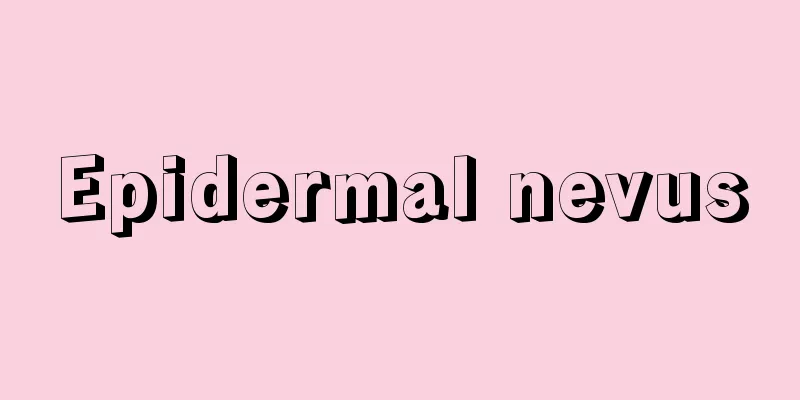

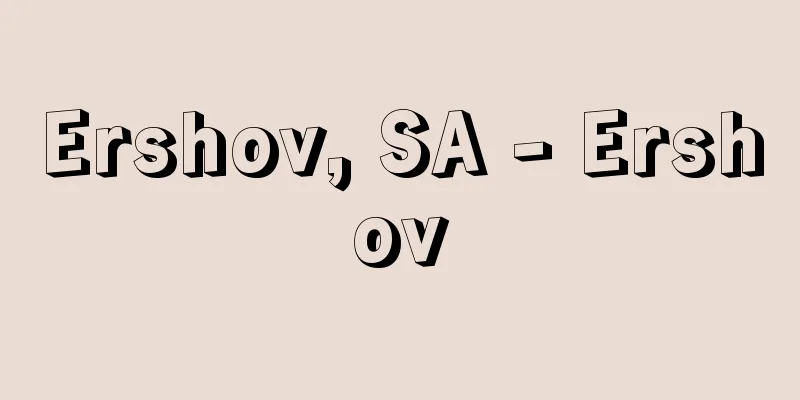
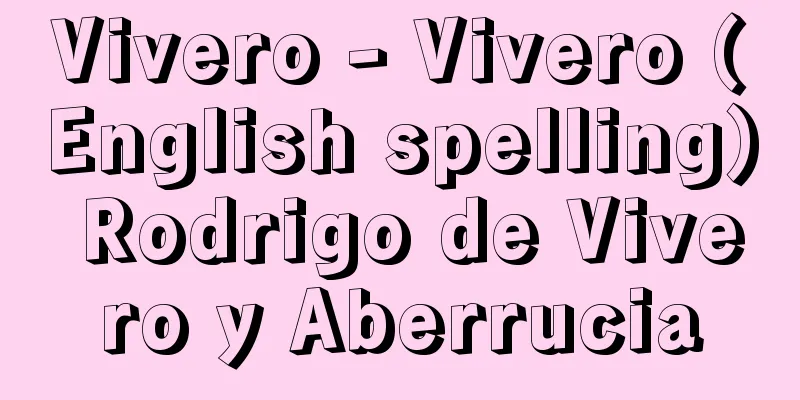
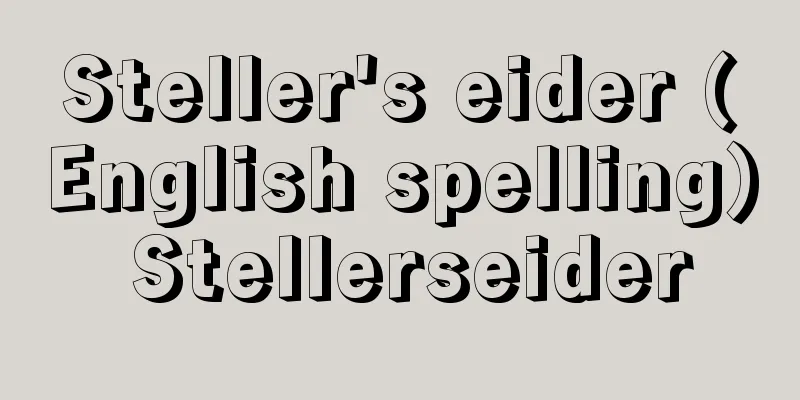
![Guangdong [Province] - Canton](/upload/images/67cb4bd90e68d.webp)
